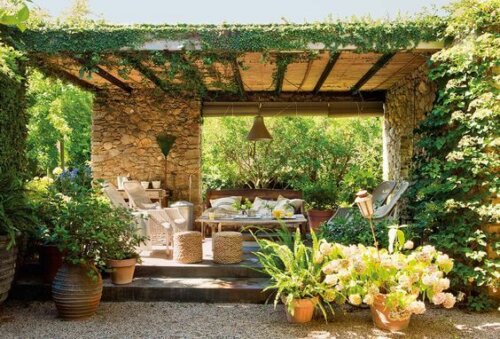Colors Can Make a Space Feel Clean

The decoration of a space is basically determined by its function. Besides choosing the actual furniture you need, colors are key – they have a meaning. Granted, they can make a space feel clean and convey a sense of hygiene.
Each of the rooms in the house has a purpose. Getting ready for work, kicking back and relaxing, cooking, personal hygiene or food preparation are among some of the main functions of a home.
The goal is to adapt each one of them so that there is a clear harmony between their look and the use you give them. It’s important to achieve a practical and cozy environment in keeping with the general harmony of the home and expressing your personality!
Colors convey sensations

Since childhood, we’ve been taught to associate colors with certain aspects of life and nature. What’s more, we often identify with some of them. We all have our favorite colors, which we incorporate into our lives through clothing or home decoration.
Dark colors can generate gloomy atmospheres, whilst the warmest ones are more homely and lively. Cold tones have a more active and friendly vibe, while neutral colors combine perfectly with everything.
Following this logic, we can speak of hygienic colors – those that convey a sense of cleanliness. Among these, you’ll find a range of whites, blues and light greens, and even some pastel shades.
Basically, these classifications represent perception and the human mind. To achieve a sense of cleanliness through decoration, you should go for light and shiny tones that keep the gloominess at bay.
Cleansing is not only a physical action, it is also psychological.
Clean colors and their use in rooms of the house
First of all, the moment you enter a room, you’ll start to register a lot of different sensations. These sensations are a consequence of the colors that have been used in the decor. In essence, that’s what chromatherapy is all about. Let’s look at some rooms where you can play with colors that convey a sense of hygiene:
- White plays a key role n the bathroom. It’s everywhere from the ceramics to the sanitary ware; and it relates very well to any other color, providing a hygienic and fresh feel in this room.
- Similarly, white can be a focal point in the kitchen. However, other tones such as blues, greens, light earthy colors, greys in appliances, etc. also fit in.
- The entrance is the access to the house and, therefore, it gives the visitor a clue about how the rest of the house will look. Here, you can let your taste show and go for tones such as salmon, pistachio green, etc.
The neutral environment – a basic component

You can use neutral colors to achieve a feeling of cleanliness. Gray tones are, for example, are a fundamental go-to – they provide the foundations for combining and relating to other colors, but they can also fill a space on their own.
Gray doesn’t clash with other colors or generate tension – indeed, quite the opposite. As long as it isn’t too dark, it can convey a sense of cleanliness. It can look very good if combined with white and neutral shades.
The same can be said of cream or beige – these tend to be rather dull and go unnoticed if used on their own. However, they can be a real hit if used in calmer areas such as in the living room, the bedroom, or the dining room, especially in combination with other tones.
Blue-green – nature and hygiene
One of the most commonly used colors in public areas such as hospitals, clinics, and health centers is blue-green. Why is this color so popular? It is a functional component of these spaces as it conveys a sense of cleanliness and purity to the mind.
In fact, it reminds us of the countryside, with its freshness and stillness. Therefore, it can take center stage in places such as the bathroom, kitchen, or bedroom.
In short, there’s a wide range of colors whose purpose is to influence emotions and convey a meaning – a sense of cleanliness and the impression of hygiene.
All cited sources were thoroughly reviewed by our team to ensure their quality, reliability, currency, and validity. The bibliography of this article was considered reliable and of academic or scientific accuracy.
- Lluch, Francisco Javier: Arte de armonizar los colores, Barcelona, Imprenta de El Provenir, 1858.
- Sudjic, Deyan: La luz y el color en la decoración, Folio, 1992.








